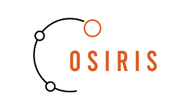Meetings: Knowledge Maps
WP3 GA3.1: Regional maps of silver knowledge management process
13th & 19th December 2019
I Knowledge Panel Meeting – Regional Map of Silver Knowledge Management, Hämeenlinna, Finland

The aim of this meeting organized by HAMK was to identify and visualize sources, location, flows and storage of knowledge within open innovation ecosystem (related to the RIS3 priority to be tackled in each country) that fosters the emergence of ideas, concepts and scenarios leading to innovative solutions and enhance their market uptake.
The eight panel members participated in this meeting were challenged to think about conditions enabling knowledge collaboration and sharing as well as benefits and barriers for knowledge sharing. Participants of the knowledge panel meetings had diverse sources of expertise. They represented organizations that are key innovation actors in the regional open innovation ecosystem related to the RIS3 priority in Finland, which is smart living environment. One participant represented senior citizens’ organisation.
I Knowledge Panel Meeting focused primarily on the issues related to Knowledge Management among innovation actors within the regional open innovation ecosystem. The information obtained during this panel meeting was used to create a collective cognitive map. With the help of the “post-its technique”, the panel members generated and wrote down 331 ideas or determinants of knowledge cooperation and knowledge sharing within the open innovation ecosystem. These ideas were organised in six clusters, namely: “involved innovation actors”, “motives and benefits”, “barriers and limitations”, “improvement actions and initiatives”, “general skills, capabilities and competences” and “resources and knowledge-based activities”.
II Knowledge Panel Meeting – Regional Map of Silver Knowledge Management, Hämeenlinna, Finland

II Knowledge Panel Meeting organized by HAMK was dedicated to the validation of the collective cognitive map built based on the data collected at the I Meeting and convert it into a fuzzy cognitive map (FCM) to quantify the intensity of cause-and-effect relationships and show the real dynamics of the decision problem at hand. The panel meeting was held with the same experts participating in the first meeting. Additionally, experts were challenged to think about the ways senior citizens/end-users can enhance knowledge sharing/transfer/management within an open innovation ecosystem.
At the beginning of the second panel meeting, the structure was discussed with and among the panel members for validation. The experts were asked to quantify the cause-and-effect relationships identified in the previous meeting by estimating intervals according to the type of relationship (i.e. positive or negative) and using an interval from −1 to 1. Having quantified all cause-and-effect relationships, the Pajek software package (www.mrvar.fdv.uni-lj.si/pajek) was used to create the final FCM of determinants of KC and KS within the regional open innovation ecosystem. Figure 2 shows a simplified version of the final FCM.
As a result, “improvement actions and initiatives” is directly related to the conditions supporting both Knowledge Collaboration and Knowledge Sharing. It covers 93 identified factors such as “working together with universities”, “inviting students to participate”, “publishing to share knowledge”, “clear aims and goals for information needs”, “listening to elderly people”, “sharing experiences of success”, “meetings with end-users”, “sharing problems”, “informal discussions”, “storytelling”, “idea competitions” etc.



